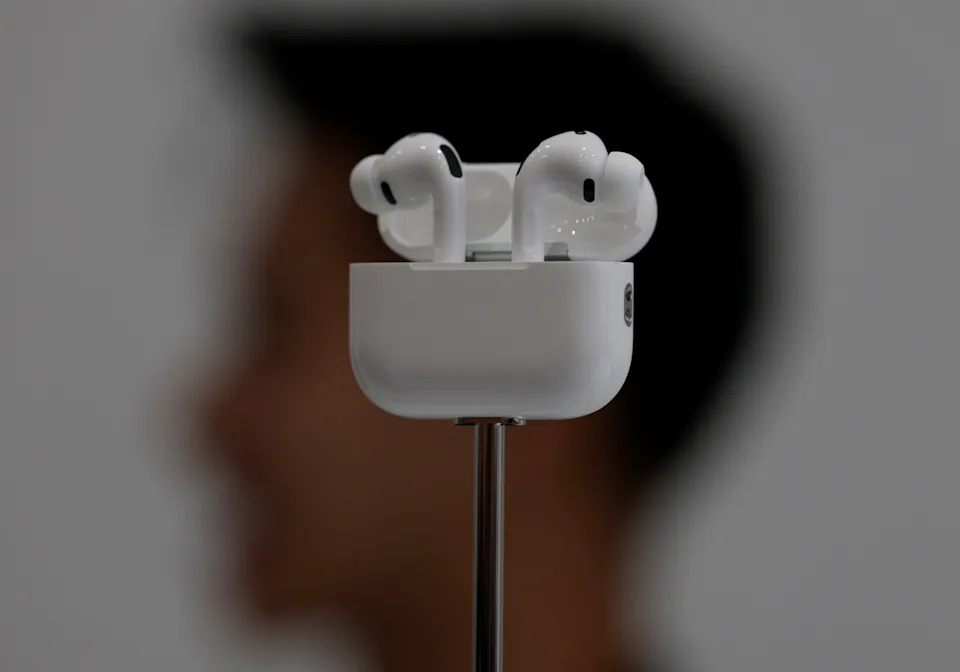Apple this week unveiled AirPods that can provide live translation for users.
The AirPods Pro 3 were launched on Tuesday along with the tech giant’s new iPhone 17 line-up and updates to its digital watches.
Live translation on the £219 earbuds is available in English, French, German, Portuguese and Spanish, while Italian, Japanese, Korean and a simplified version of Chinese are set to be on offer by the end of the year.
However, the tool – part of the company’s AI “Apple Intelligence” offering – won’t be available in France, Germany, Portugal or Spain, because Apple is blocking the translation feature from being used in the EU.
Why is it unavailable in the EU?
Following the launch of its new AirPods, Apple’s website states: “Live Translation with AirPods is not available if you are in the EU and your Apple Account Country or Region is also in the EU.”
This is because of regulation – specifically the EU’s Digital Markets Act – designed to stop the biggest tech firms dominating digital markets, and to give consumers and business more choice.
Apple is blocking the translation function in the EU because of the act’s “interoperability” requirements of its iOS system. However, it is understood the company is attempting to make the tool available as soon as possible.

The new Apple AirPods Pro displayed at the company’s launch event this week. (Getty Images)
It comes amid wider clashes between Apple and the EU. A ruling under the act in March specified nine iOS functions required to be made more compatible with other companies’ devices.
And the company was fined £428.5m in April for breaches of the Digital Markets Act after preventing app developers pointing users to cheaper options outside the company’s App Store.
Apple said it was “yet another example of the European Commission unfairly targeting Apple in a series of decisions that are bad for the privacy and security of our users, bad for products, and force us to give away our technology for free.
“We have spent hundreds of thousands of engineering hours and made dozens of changes to comply with this law, none of which our users have asked for. Despite countless meetings, the commission continues to move the goalposts every step of the way.”
Why is translation available in the UK?
Apple does not face the same regulatory hurdles in the UK.
However, UK watchdogs appear to have Apple in their sights. In July, for example, the Competition and Markets Authority said Apple and Google hold an “effective duopoly” with their mobile platforms and may be forced to open them up to more competition.
Between 90% to 100% of UK mobile devices run on Apple or Google’s mobile platforms.

Apple CEO Tim Cook at the product launch event this week. The company has clashed with the EU over regulation. (Getty Images)
And the regulator outlined “targeted and proportionate” possible actions for each firm to improve competition across app stores, so-called interoperability, consumer choice and AI services.
Apple criticised this, saying: “We’re concerned the rules the UK is now considering would undermine the privacy and security protections that our users have come to expect, hamper our ability to innovate, and force us to give away our technology for free to foreign competitors.
“We will continue to engage with the regulator to make sure they fully understand these risks.”
Read more
